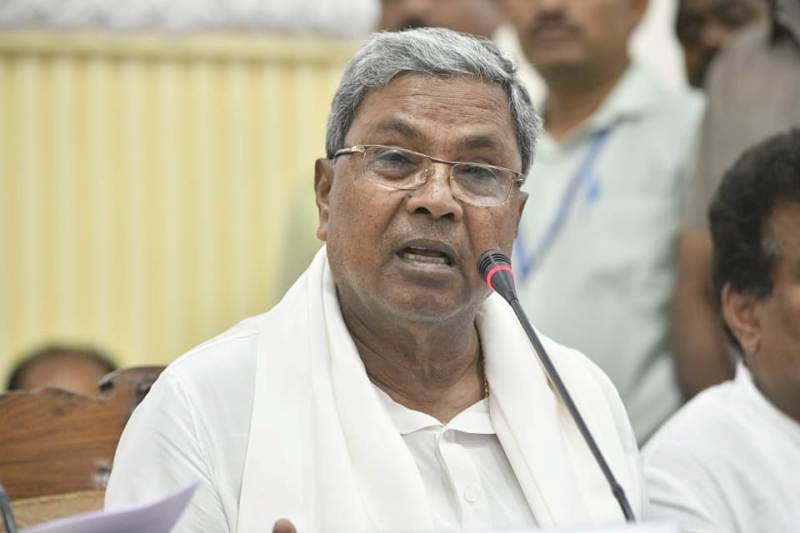Karnataka HC uphold hijab ban, detailed order of three-judge bench
Since how long all the petitioners have been wearing hijab is not specifically pleaded. The plea with regard to wearing of hijab before they joined this institution is militantly absent. No explanation is offered for giving an undertaking at the time of admission to the course that they would abide by school discipline, the three-judge bench observed.

Bengaluru: While upholding the government order banning the wearing of hijabs in the classrooms, the three-judge bench has observed that the holy Quran does not mandate wearing of hijab or headgear for Muslim women.
Three judge bench comprising chief justice Ritu Raj Awasthi, Justice Krishna S. Dixit and Justice J.M. Khazi observed that wearing hijab at the most is a means to gain access to public places and not a religious end in itself. It was a measure of women enablement and not a figurative constraint, the court observed.
Not essential religious practice: “No material placed on record to prima facie show that wearing of hijab is a part of an essential religious practice in Islam and that the petitioners have been wearing hijab from the beginning”, the bench said.
“This apart, it can hardly be argued that hijab being a matter of attire, can be justifiably treated as fundamental to Islamic faith”, the court pointed out.
“It is not that if the alleged practice of wearing hijab is not adhered to, those not wearing hijab become the sinners, Islam loses its glory and it ceases to be a religion. Petitioners have miserably failed to meet the threshold requirement of pleadings and proof as to wearing hijab is an inviolable religious practice in Islam and much less a part of ‘essential religious practice’. Court observed while answering the question on wearing hijab is part of essential religious practice in the Islamic faith.
“No material is placed before us for evaluation and determination of pleaded conscience of the petitioners. They have not averred anything as to how they associate wearing hijab with their conscience, as an overt act. There is no evidence that the petitioners chose to wear their headscarf as a means of conveying any thought or belief on their part or as a means of symbolic expression. Pleadings at least for urging the ground of conscience are perfunctory, to say the least”, the Court remarked.
Since how long all the petitioners have been wearing hijab is not specifically pleaded. The plea with regard to wearing of hijab before they joined this institution is militantly absent. No explanation is offered for giving an undertaking at the time of admission to the course that they would abide by school discipline, three-judge bench observed.

Court has rejected the plea of grant permission to wear hijabs which suits to the prescribed dress code or uniforms in the schools and colleges. If we permit such proposals, the school uniform ceases to be uniform. There shall be two categories of girl students viz., those who wear the uniform with hijab and those who do it without. That would establish a sense of ‘social-separateness’, which is not desirable, the court observed while rejecting the plea of the petitioners of Kundapura Bhandarkars’ first-grade college.
In several countries, wearing of burqa or hijab is prohibited, is of no assistance to us. Noble thoughts coming from whichever direction are most welcome. Foreign decisions also throw light on the issues debated, cannot be disputed. However, courts have to adjudge the causes brought before them essentially in accordance with native law. So we are of the considered opinion that the prescription of school uniform is only a reasonable restriction constitutionally permissible which the students cannot object for the same.
At times, regard being had to special conditions like social unrest and public agitations, governments do take certain urgent decisions which may appear to be knee-jerk reactions. However, these are matters of perception. Maybe, such decisions are at times in variance with their earlier stand, the court observed while upholding the government order dated February 5, banning the wearing of hijabs in the classrooms and making uniforms mandatory in the educational institutions.
The schools and institutions have the power to prescribe student uniforms. There is no legal bar for the School Betterment (Development) Committees to associate with the process of such prescription. However, there may be some scope for the view that it is not desirable to have elected representatives of the people in the school committees of the kind, one of the obvious reasons being the possible infusion of ‘party-politics’ into the campus.
This is not to cast aspersion on anyone. We are not unaware of the advantages of the schools associating with the elected representatives. They may fetch funds and such other things helping the development of institutions. This apart, no law or ruling is brought to our notice that interdicts their induction as the constituent members of such committees.

















